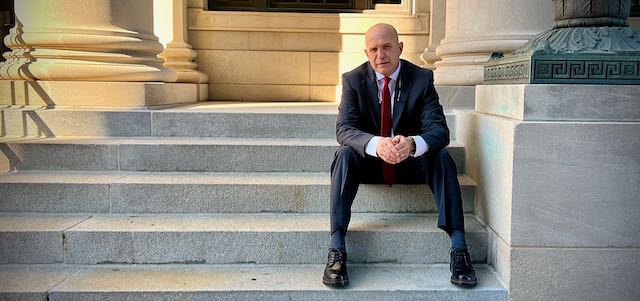For free consultation call 918 582 1313
It is common belief the "presumption of innocence" is the foundation of our criminal justice system, but in reality the "presumption of innocence" plays a minor role. The "presumption of innocence" only comes into play if the defendant is willing to risk his or her freedom by going to trial, in essence the "presumption of innocence" is a trial right. What really drives the criminal justice system is not the "presumption of innocence", but "probable cause".
Probable cause is all that is needed for the police to make an arrest. Probable cause is all that is needed for a judge to issue an arrest warrant. Probable cause is all that is needed for a judge to issue a search warrant. Probable cause is all that is needed for a district attorney to formally charge a defendant with a crime. Probable cause is all that is needed for a federal grand jury to return an indictment. Probable cause is all that is needed for a judge to order a defendant to stand trial at a preliminary hearing. Probable cause is all that is needed to deny the defense demurrer at trial and send the case to a jury for a decision.
"Probable Cause" has been defined by the Supreme Court as "facts and circumstances sufficient to warrant a prudent man in believing that the (suspect) had committed or was committing an offense." See Beck v. Ohio, 379 U.S. 89, 91, 85 S.Ct. 223, 225, 13 L.Ed.2d 142 (1964).
Other courts have defined probable cause slightly differently, but always similarly. One thing is for certain, probable cause is significantly less than the preponderance of the evidence standard (otherwise know as greater weight of the evidence). What that means is that a defendant could have more evidence that he or she is innocent than the government has that they are guilty and still be arrested for a crime, be forced to post bond or sit in jail, have their property searched with a search warrant, be formerly charged with a crime and ordered to stand trial.
What this means is if the government has enough evidence to establish probable cause and there is not a basis for a dispositive motion (a motion that will end the government's case) than the government has enough evidence to force a defendant to choose between risking their freedom at a jury trial or taking a plea agreement to lessen the punishment. This is why the prosecution is able to force a defendant to plea guilty the vast majority of the time.
I call this the "calculation of the risk" of a criminal case. Even if a defendant has a much greater chance of winning a case than losing a case, even if the defendant is innocent, it generally does not make sense for a defendant to risk going to a jury trial. Even if the defendant is charged with a misdemeanor and truly innocent, how many people can risk going to jail for a year just to prove their innocence? For most people a year in jail would mean losing their jobs, losing their house in a foreclosure, having their cars re-possessed, and having to file bankruptcy. Not to mention having their freedom taken from them for a year and being away from their families.
Defendants facing criminal charges need to have a basic understanding of how the system works and it is vitally important for those accused of crimes to retain a lawyer that truly understands the criminal justice system.
Learn about how good lawyers analyze criminal cases.
Tulsa, Oklahoma 74103
